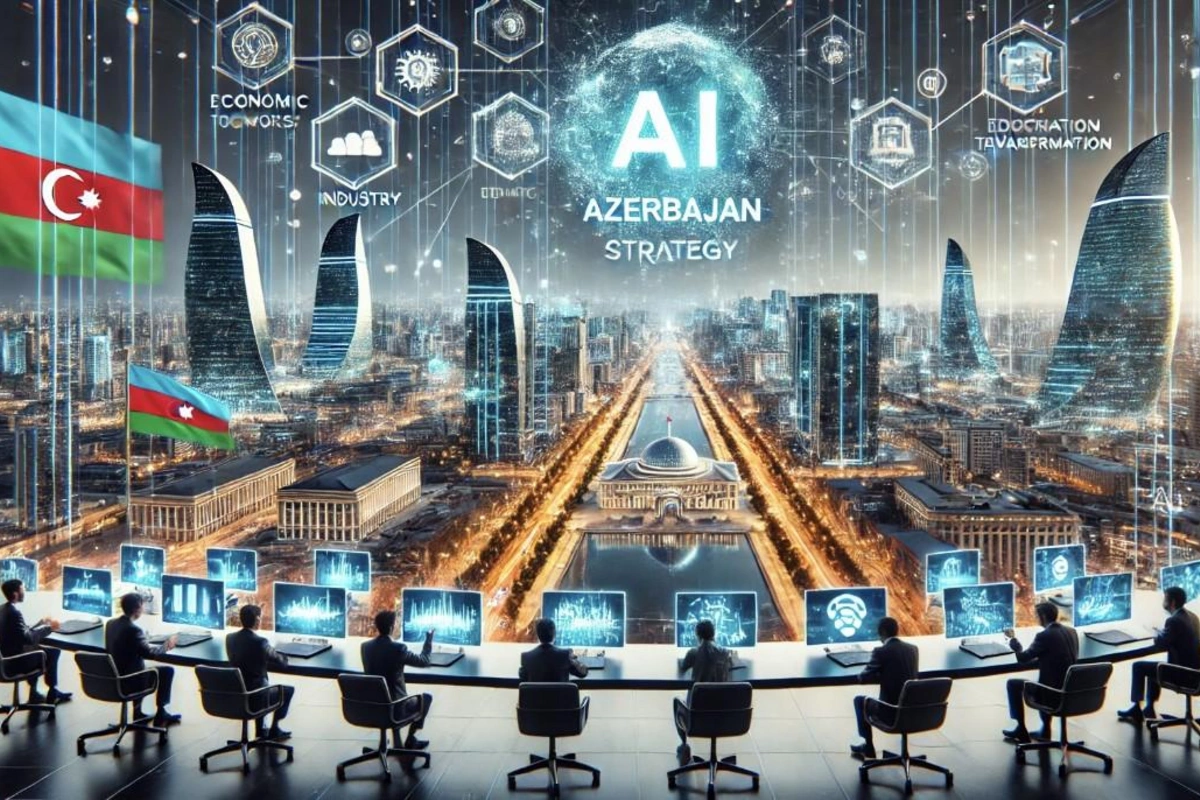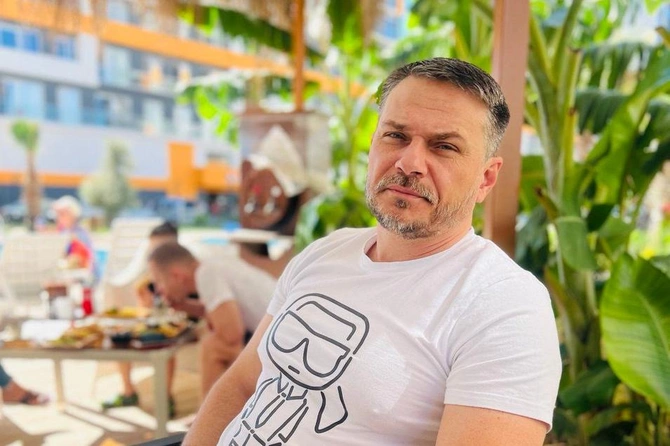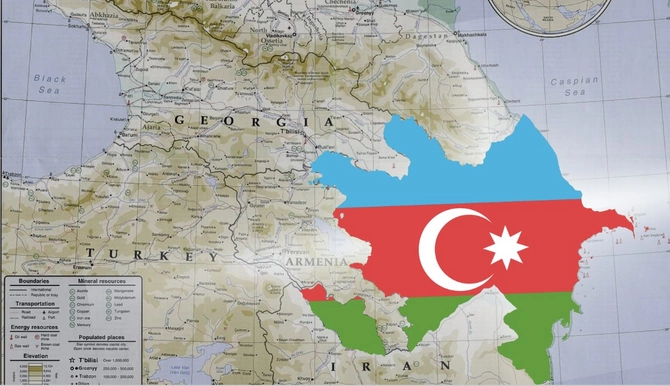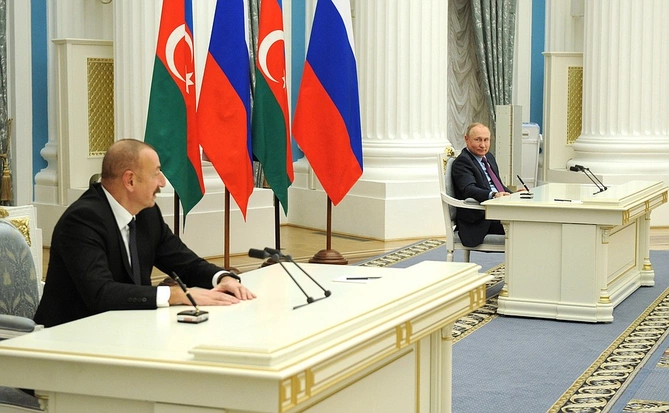
Photo credit: Azernews
In an interview with The Caspian Post, Israeli public figure, political analyst, and Editor-in-Chief of News Wall Israel, Yuri Lagunin, shared his exclusive insights on how Azerbaijan is transforming from a regional player into a strategic center of gravity in the rapidly shifting global order.

According to Lagunin, the era of traditional diplomacy is giving way to an age of geo-algorithms, where those who master information, technology, and strategic foresight gain the upper hand. He highlights Azerbaijan’s unique geopolitical positioning, its pragmatic foreign policy, and its growing role as a mediator in complex international conflicts. In this wide-ranging interview, Lagunin explains why Azerbaijan’s refusal to play by someone else’s rules, its focus on national sovereignty, and its investment in advanced analytical tools like artificial intelligence make it not just a regional leader, but a respected power capable of influencing global processes-earning recognition even from those who once tried to sideline it. Lagunin also explores whether Azerbaijan could become a strategic bridge between Russia and Ukraine, helping to spark a future peace dialogue when the world is ready for it.
- Yuri, can artificial intelligence, designed to operate amid high geopolitical turbulence, predict the next phase of transformation in the South Caucasus? And what role does it assign to Azerbaijan in this scenario?
- In today’s world, information has become not just the most valuable commodity-it has transformed into a currency of power, a tool of influence, and an instrument of strategic dominance. Yet information alone is merely raw material. Its true value emerges in the hands of those capable of gathering it piece by piece, filtering out the noise, analyzing it in context, and presenting it in a form that not only answers current questions but anticipates future developments.
This is precisely why artificial intelligence plays such a vital role in next-generation media. In times of global turbulence and intensifying geopolitical competition, AI is no longer just a supporting tool-it is becoming a full-fledged actor in producing analytical insights.
As a journalist working at the crossroads of conflict zones and interests-primarily in Israel, the South Caucasus, and especially Azerbaijan-I regularly engage with organizations developing new approaches to analyzing, modeling, and managing complex situations. One such organization that particularly interests me is the Social Engineering Agency (SEA), a pioneering entity in the field of intellectual analysis in this era of post-truth and cyber influence.
At the heart of SEA’s work is its proprietary development-Pandora, an artificial intelligence system created to function in conditions of high uncertainty and multi-layered confrontation. Pandora does not merely analyze; it forecasts developments, constructing probable scenarios, including those that are not yet visible on the surface.
SEA’s strength also lies in its ability to forge international partnerships. In recent years, the agency has actively collaborated with independent think tanks, universities, and private institutions specializing in predictive analytics and cybersecurity in countries such as Israel, the United States, Lithuania, Estonia, and Poland. Together, they are developing methodologies for modeling conflicts, information campaigns, social upheavals, and electoral processes.
Azerbaijan, as a key player in the South Caucasus, is becoming an increasingly attractive target for such initiatives. Its strategic location between East and West, participation in trans-regional energy and logistics projects, experience in restoring territorial integrity, and growing interest in AI technologies position the country as a potential application site for SEA’s solutions. Discussions are already underway regarding the localization of Pandora’s analytical modules to assess risks in post-conflict regions, manage social dynamics in liberated territories, and analyze foreign policy scenarios.

I am convinced that the name SEA will soon resonate from podiums, appear in reports, and be mentioned in the offices of those shaping the future of Azerbaijan. After all, in a world where even silence can be a calculated operation, those who control not the noise, but the meaning, ultimately prevail.
- Do you believe we have entered an era where diplomacy has been replaced by "geo-algorithms"-where the logic of "preemptive chaos" overrides protocol? How can small but strategically minded states like Azerbaijan influence the regional agenda and even set the terms for larger players?
- Today, any diplomatic process-whether multilateral negotiations or confidential contacts between rival parties-should no longer be viewed as a linear chain of decisions and compromises. It is a multi-layered battle for the right to shape tomorrow’s world order. This struggle is no longer about maintaining balance within the framework of liberal universalism or collective legitimacy, both of which are rapidly losing their relevance. The world has entered an era of "reinventing sovereignty," where old formulas have lost their power and traditional mechanisms of global governance have become ineffective in the face of a fragmented and force-driven reality.
Three vectors now define strategic analysis:
1. The institutional structure of unfolding events.
2. The strategic goals of key players.
3. The critical turning points that shape the course of the geopolitical game.
At the heart of this process are not legal norms, but competing models of the future. Every negotiation platform reflects a deeper strategic confrontation over the very meaning of "order," "stability," "power," and "sovereignty."
A textbook example of this new approach is the redefinition of global roles that began during Donald Trump’s first administration. Despite formal rivalry, the United States and Russia started constructing a new geopolitical framework where actors like the European Union and Ukraine shifted from being participants to mere variables in someone else’s equation. This was more than a geopolitical reset-it was a revision of the fundamentals of international relations and the dismantling of the old hierarchy of influence.
In this context, the South Caucasus has emerged as a key arena for shaping this new reality. Azerbaijan, leveraging both its domestic potential and successful foreign policy positioning, has broken free from the confines of regional status and achieved a level of influence that even major global powers must acknowledge. Europe, reluctantly but inevitably, is now recalibrating its policies, backing down on several critical issues where it once stood firm.
For Baku, this is not just a diplomatic victory-it is a strategic leap ahead. Success in this configuration demands not only political will but also access to precise, verified, and timely information-information that can be as powerful as military force or economic leverage. In an environment where any threat-external or internal-can instantly morph into a hybrid scenario, the key is not merely to react, but to anticipate. The sharper the configuration of global confrontation, the higher the value of intellectual and analytical superiority.
- Would you agree that Azerbaijan’s refusal to play by someone else’s rules and its commitment to a sovereign strategy have made it not just a regional leader, but a true "independent center of gravity"-one that even those who once sought to isolate it are now drawn toward?
- As the global architecture of security and alliances undergoes dramatic transformation, it is crucial not to repeat the fatal mistakes that have already served as warnings to others. Ukraine, having lost its international agency, vividly demonstrates that illusions of power without real resources and coherent strategy lead not to strengthened positions, but to isolation and dependency. In this regard, Azerbaijan and Israel share a common understanding: the world respects not those who shout the loudest, but those who can back their words with action.
No one on the international stage genuinely seeks to engage with weak players-except perhaps as dependents or bargaining chips. Trying to play geopolitics from a position of strength without the necessary tools is doomed to fail. Ukraine has become a striking example of how foreign policy adventures, fueled by the backing of external powers but lacking internal consolidation and real strength, result in a loss of sovereignty. This lesson must be heard and understood by all.
Ultimately, international partners inevitably turn to those who are strong-not necessarily like-minded, but resilient, consistent, and capable of solving real, not imaginary, problems. This is precisely how Azerbaijan is perceived today. Despite attempts to discredit or exclude Baku from certain negotiation formats, it is to Baku that others turn for dialogue. Because Baku keeps its word. Because Azerbaijan possesses the resources, the will, and the tools of influence.
And the stronger Azerbaijan becomes, the more it can shape its own strategic reality. This is not aggression but calculated strategy: strengthening its regional position at the expense of those who were never true allies. This is the essence of new diplomacy-a strategy of "influence without entanglement," where one leverages weight and authority to steer processes without being drawn into their chaos.
It is worth noting another recent development-the once heavily promoted concept of the "Brussels-London-Kyiv" globalist axis, touted as a new pillar of world stability. This project ultimately failed because it was based on exclusion: Azerbaijan was not considered an equal partner, but rather a target of pressure. Baku recognized this in time and stepped out of someone else’s script, choosing its own course where national interests are not sacrificed for foreign slogans. Azerbaijan bet on sovereignty, pragmatism, and strength-and it made the right choice.
As a result, those who sought to control the world through managed chaos and manufactured crises are now facing defeat. Meanwhile, those who placed their bets on common sense, national interests, and strategic thinking are the ones shaping the future. And Azerbaijan stands proudly among them.
- In your opinion, could Azerbaijan become the rare strategic "bridge" through which the first spark of future peace between Russia and Ukraine might pass? And if so, what price do states pay when they take on the role of mediator in times of geopolitical upheaval?
Photo: Kremlin
- We are witnessing not only a transformation of traditional mediators such as Türkiye, the Vatican, and China but also a fundamental shift in the very nature of mediation as an institution of international politics. Amid growing instability and the rethinking of global order, mediation is no longer just a tool for de-escalation-it is emerging as one of the key levers in shaping the new world architecture.
Azerbaijan has increasingly demonstrated its confidence in this role, thanks to its unique geopolitical intuition, rich historical experience of civilizational coexistence, and its growing status as a sought-after diplomatic platform.
One notable example is Baku’s role in facilitating the normalization of relations between Israel and Türkiye. This initiative not only underscores Azerbaijan’s rising authority as a neutral yet respected and influential mediator but also shows that nations with flexible but strategically oriented foreign policies can offer the kind of trust-building formats that the current international system sorely lacks.
In this context, the inevitable future negotiations between Russia and Ukraine represent more than just the end of a military conflict. They mark a critical bifurcation point-the beginning of a new global security architecture. On this platform, new principles of coexistence between powers will crystallize, blending the trends set by Washington and Moscow with the interests of regional power centers.
In this emerging reality, Azerbaijan-with its unique experience in balancing the interests of East and West, and the Muslim and Christian worlds-should not merely participate in shaping this new geopolitical model but claim a strategically significant role within it. Its voice represents not confrontation, but balance; not hegemony, but reasonable coexistence. And it is precisely such states that are becoming the key architects of the new world.
Share on social media